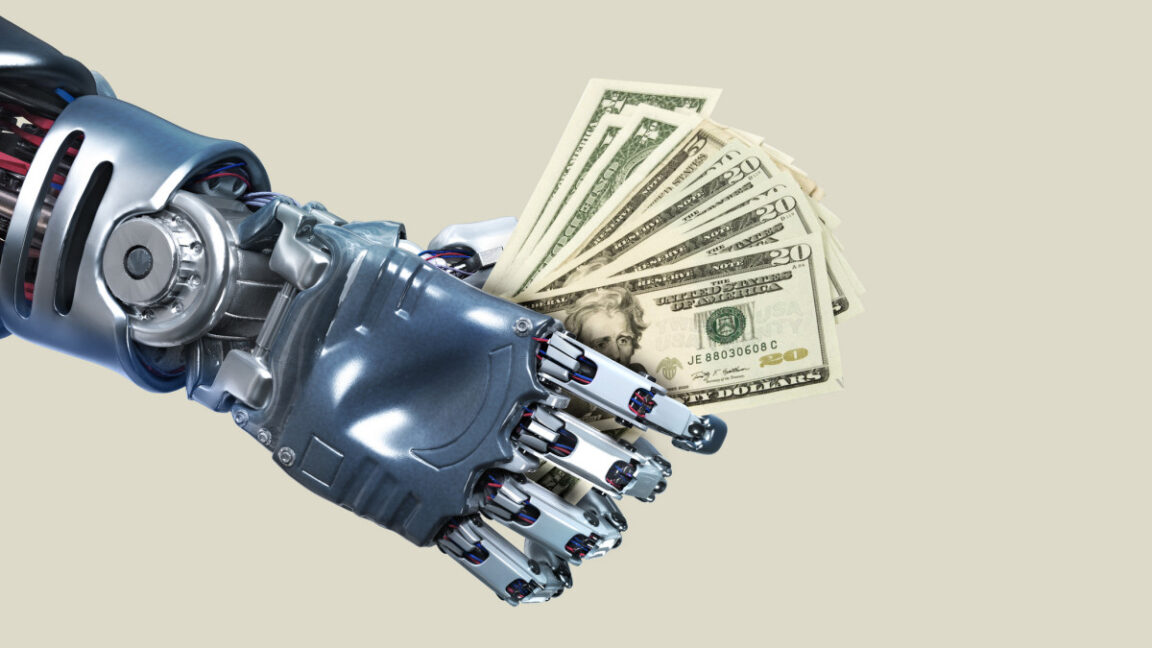AI Talent Compensation Soars Beyond Historical Contexts

In an unprecedented transformation, Silicon Valley's race for AI talent has reached heights previously unimaginable in historical scientific contexts. Recently, a groundbreaking offer from Meta to AI researcher Matt Deitke exemplified this trend, proposing a staggering $250 million over four years, with potential earnings reaching $100 million in just one year.
Deitke, an AI expert with notable contributions at the Allen Institute for Artificial Intelligence and as a cofounder of the startup Vercept, became a prime target due to his expertise in creating systems that integrate diverse types of data—skills Meta eagerly sought. But Deitke is only part of this escalating trend. Reports indicate another unnamed AI engineer was offered a monumental $1 billion package, underscoring the fierce competition in the industry.
These figures starkly outstrip past compensations for monumental scientific endeavors. For instance, J. Robert Oppenheimer, the mastermind behind the Manhattan Project, earned around $10,000 annually during WWII, a figure that, inflation-adjusted, equates to a contemporary senior software engineer's salary. In contrast, young Deitke, just shy of completing his PhD, commands a compensation hundreds of times greater. Even top-tier athletes like Steph Curry fall short of these astronomical figures, with AI specialists attracting premiums more akin to NBA-level contracts.
Racing toward Superintelligence
Meta's aggressive financial commitments reflect its belief in the transformative potential of AI, particularly superintelligent systems, as articulated by CEO Mark Zuckerberg. The allocation of vast resources towards achieving artificial general intelligence (AGI) signifies more than just market domination; it represents the potential to reshape our economic and technological landscape.
While skeptics view this as part of Silicon Valley's trending hyperbole, the industry treats leading researchers as indispensable assets. Achieving AGI could allow creation and automation at levels previously reserved for human inventiveness, potentially ushering a new era of technological advancement.
The fiscal disparity becomes clearer in historical contexts. Thomas Watson Sr.'s substantial salary during IBM's rise was a fraction, relative to the times, compared to today's offerings for AI talent. Collaborative feats by Bell Labs in developing foundational technologies were achieved without the salaries we witness today's AI experts commanding.
Astronomical Comparisons with the Space Race
The Apollo program also highlights this contrast. Neil Armstrong's historic lunar journey was compensated at what would be a modest sum in today's terms, dwarfed by current AI compensation packages which eclipse even veteran space engineers' earnings in mere days.
The Unique AI Talent Market
The recent escalation in AI compensation is rooted in scarcity and a competitive pressing for dominance. Unlike previous technological races, today's AI industry is marked by trillion-dollar giants vying for a limited cohort of elite experts. The expensive pursuit is compounded by advancements in critical areas like multimodal AI, a field in which Deitke excels.
The differences in economic scales between now and the historical scientific endeavors provide context. The costs of projects like the Manhattan Project now seem paltry alongside the investments tech giants are wagering on future AI breakthroughs. The competitive rush is further underscored by private discussions and intricate negotiation strategies among researchers, ushering a new pinnacle of individual compensation expectations.



